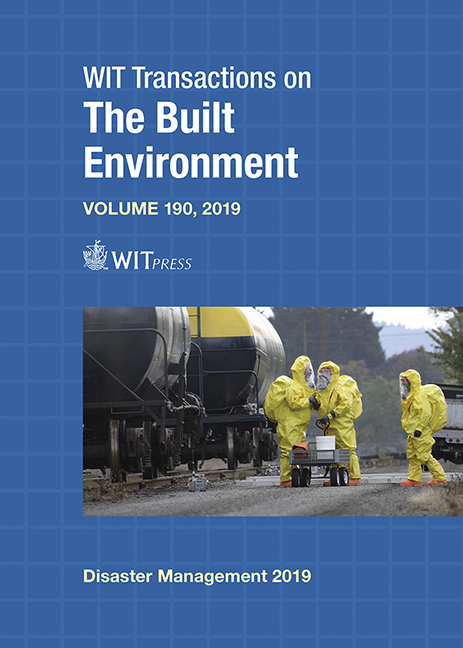SCIENCE DURING CRISIS: THE ROLE OF SCIENCE IN DISASTER RESPONSE
Price
Free (open access)
Transaction
Volume
190
Pages
9
Page Range
103 - 111
Published
2019
Size
206 kb
Paper DOI
10.2495/DMAN190091
Copyright
WIT Press
Author(s)
GARY E. MACHLIS
Abstract
The number, scale, intensity, impact, and cost of environmental and technological disasters is increasing, from Category 5 hurricanes/typhoons to earthquakes in dense and growing urban spaces. Since 2014, the international community has experienced 1,639 man-made and natural disaster events that collectively have caused over 75,000 fatalities and US$917 billion in damages and recovery costs. Protecting human health, reducing risk, and improving outcomes requires science-informed decisionmaking. Hence, science during crises is of critical importance, and improved collaboration between scientists and disaster-response practitioners is essential. In this paper, based on the recent US Academy of Arts and Sciences report Science During Crisis, a set of best practices, research needs, and policy priorities are presented, along with case examples. Best practices range from the creation of interdisciplinary research teams, expanded joint training of emergency response and scientific communities, to central, curated clearinghouses for available data and insights deliverable in ways that response practitioners can use. Research needs to include improved baseline information, scenariobuilding to better understand cascading consequences, and more effective communication of science to managers, decision-makers, and the public during a disaster event. Policy priorities range from improving accessibility through to published scientific information and developing a code of conduct for scientists engaged in response. Case examples include the Gulf of Mexico Deepwater Horizon oil spill (2010), the Haitian earthquake (2010), the Fukushima Daiichi nuclear accident in Japan (2011), Typhoon Haiyan in the Philippines (2013), the South American and Caribbean zika virus emergency (2016), and Hurricane Maria in Puerto Rico (2017). A call to action is presented to improve the management, operation, and application of science during crises, in ways that increase the use, applicability, and value of science to disaster-response personnel.
Keywords
science, crisis, best practices, research needs, policy priorities




